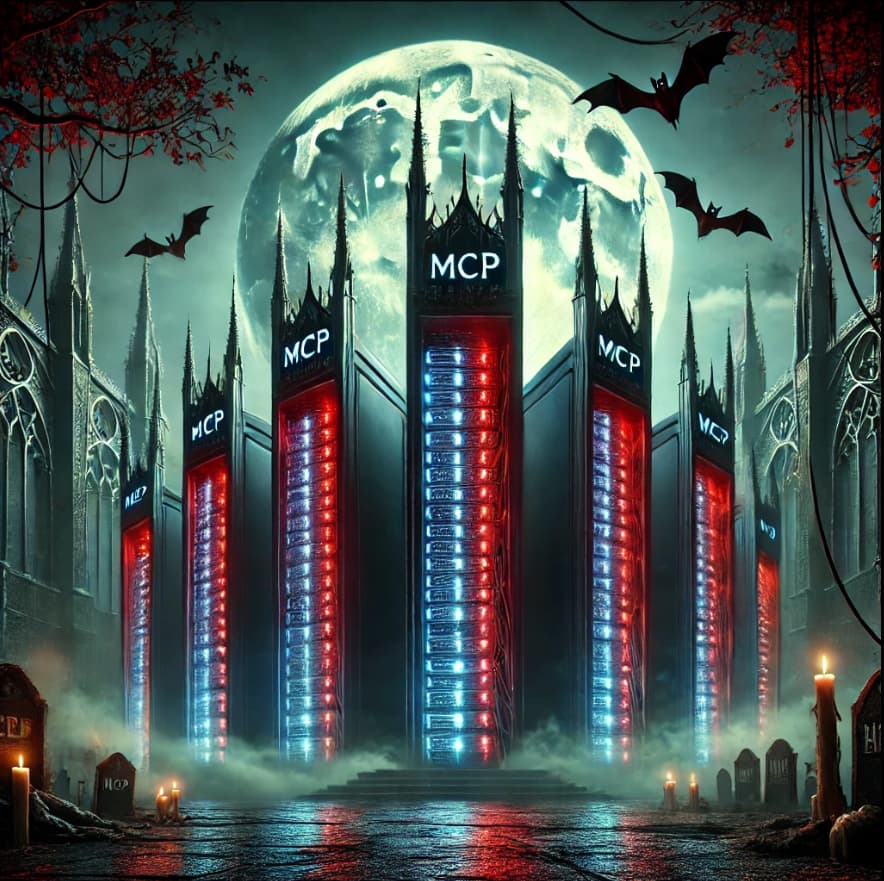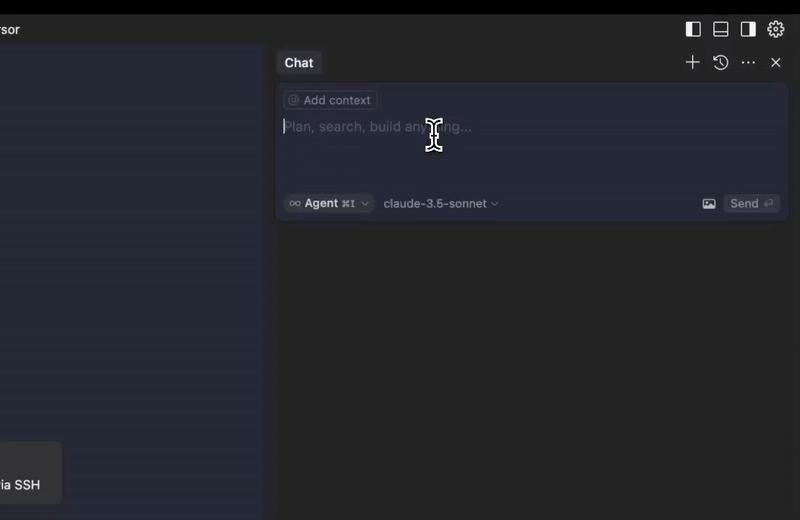Why MCP Servers Are Critical for ScrapeGraph's Success
Learn how to implement effective price monitoring strategies for Ebay using modern web scraping techniques and tools.

In today's fast-paced digital world, data processing and real-time analytics are the lifeblood of innovative companies. At ScrapeGraph, we recognize that the future of AI and data management lies in leveraging cutting-edge server technology. That's why investing in MCP (Model Context Protocol) servers is a game-changer for our operations.

Enhanced Performance and Scalability
MCP servers are engineered to process massive volumes of data in real time. This powerful infrastructure means that our data scraping and analysis tools work with minimal latency, delivering insights faster than ever before. Key benefits include:
- Real-Time Data Processing: Ensuring that every piece of information is handled immediately for up-to-date analytics.
- Scalable Architecture: Adapting to growing data needs without compromising performance.
- High-Speed Operations: Reducing delays and optimizing throughput, crucial for competitive AI applications.
Advanced Context Management for AI
One of the major challenges in AI is providing models with the precise, contextual data they need to make accurate predictions. MCP servers excel at managing this context efficiently:
- Optimized Information Flow: Delivering the most relevant data exactly when needed.
- Enhanced Model Accuracy: Allowing AI systems to generate more precise results and actionable insights.
- Support for Complex Applications: Integrating multiple data streams to boost overall system intelligence.
Integration with Anthropic's Model Context Protocol
Our integration with Anthropic's Model Context Protocol is a significant milestone. This collaboration brings several strategic advantages:
- Seamless Connectivity: Enabling smoother communication between our servers and advanced AI models.
- Improved Data Accuracy: Fine-tuning context delivery to ensure that AI systems work with the most relevant information.
- Boosted Performance: Reducing latency further and enhancing overall system responsiveness, which is essential in today's data-driven market.
A Strategic Competitive Advantage
For ScrapeGraph, adopting MCP servers isn't just about technology—it's a strategic move to solidify our market leadership. By upgrading our server infrastructure, we are able to:
- Enhance Operational Efficiency: Streamlining our processes to reduce costs and improve performance.
- Future-Proof Our Infrastructure: Staying ahead of the technological curve and ready to integrate the latest innovations.
- Strengthen Our Competitive Edge: Providing our clients with faster, more accurate, and reliable data analytics solutions.
Frequently Asked Questions
What is MCP?
Key aspects:
- Server architecture
- Real-time processing
- Context management
- Performance optimization
- Scalability features
- Integration capabilities
How does MCP enhance performance?
Enhancements include:
- Faster processing
- Better scalability
- Reduced latency
- Improved throughput
- Resource optimization
- System efficiency
Ready to Scale Your Data Collection?
Join thousands of businesses using ScrapeGrapAI to automate their web scraping needs. Start your journey today with our powerful API.
What are the key benefits?
Benefits include:
- Real-time processing
- Enhanced accuracy
- Scalable architecture
- Better performance
- Cost efficiency
- Future-proofing
What infrastructure is needed?
Requirements include:
- Server hardware
- Network setup
- Storage systems
- Processing units
- Monitoring tools
- Integration APIs
How do I ensure reliability?
Reliability measures:
- System monitoring
- Performance checks
- Error handling
- Backup systems
- Recovery plans
- Regular maintenance
What are common challenges?
Challenges include:
- Scale requirements
- Performance tuning
- Resource allocation
- Integration complexity
- System optimization
- Maintenance needs
How do I optimize MCP servers?
Optimization strategies:
- Resource allocation
- Load balancing
- Cache management
- Performance tuning
- System monitoring
- Regular updates
What security measures are important?
Security includes:
- Access control
- Data encryption
- Secure protocols
- Monitoring systems
- Audit logging
- Regular updates
How do I maintain MCP systems?
Maintenance includes:
- Regular updates
- Performance checks
- System monitoring
- Error handling
- Documentation
- Staff training
What are the costs involved?
Cost considerations:
- Hardware needs
- Software licenses
- Maintenance
- Updates
- Support
- Training
How do I scale operations?
Scaling strategies:
- Load distribution
- Resource optimization
- System monitoring
- Performance tuning
- Capacity planning
- Infrastructure updates
What skills are needed?
Required skills:
- System administration
- Performance tuning
- Integration expertise
- Error handling
- Monitoring
- Documentation
How do I handle errors?
Error handling:
- Detection systems
- Recovery procedures
- Logging mechanisms
- Alert systems
- Backup processes
- Contingency plans
What future developments can we expect?
Future trends:
- Enhanced capabilities
- Better integration
- New features
- Improved performance
- Advanced tools
- Extended support
Related Resources
Want to learn more about AI agents and multi-agent systems? Explore these guides:
- Building Intelligent Agents - Create powerful AI systems
- Multi-Agent Systems - Master agent collaboration
- AI Agent Web Scraping - Learn about AI-powered automation
- Mastering ScrapeGraphAI - Deep dive into AI capabilities
- LlamaIndex Integration) - Enhance your AI systems
- Full Stack Development - Build complete AI applications
- Structured Output - Master data handling
- Data Innovation - Discover new AI applications
- Web Scraping 101 - Master the basics of automation
These resources will help you understand how to build and deploy effective multi-agent systems.
Conclusion
The integration of MCP servers is a pivotal step in our commitment to excellence and innovation. By harnessing the power of advanced server architectures and integrating with cutting-edge protocols like Anthropic's Model Context Protocol, ScrapeGraph is positioned to deliver unparalleled performance in the world of AI and data management.
Stay tuned to our blog for more insights into how these technological advancements are driving the future of digital innovation. Embrace the evolution with ScrapeGraph and experience the difference that state-of-the-art MCP servers can make.